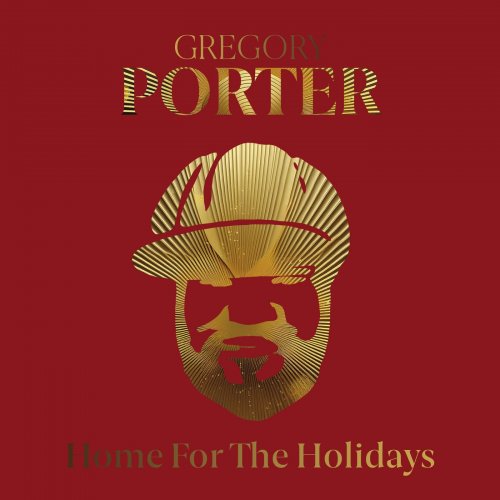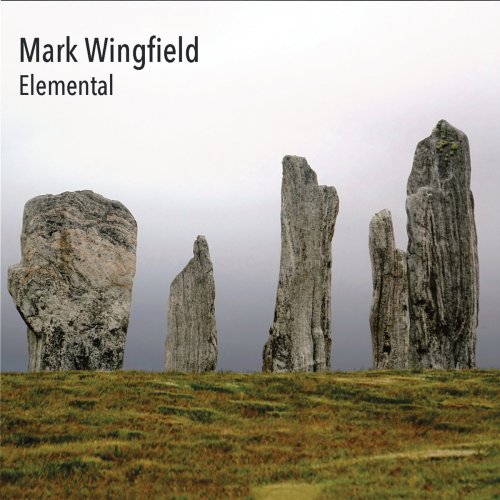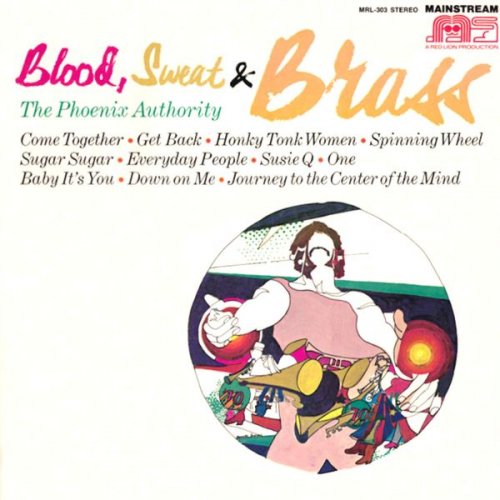Richard Hickox - Rubbra: Choral Works (2023) [Hi-Res]
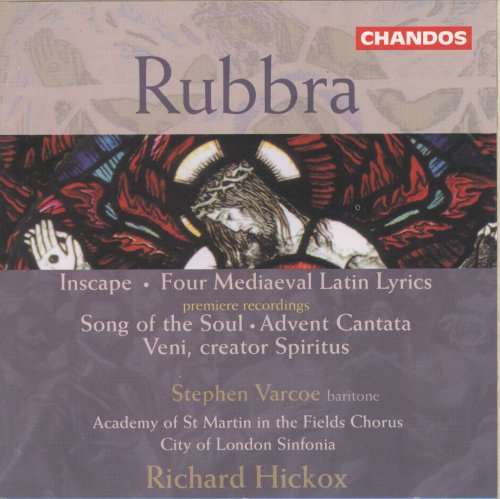
Artist: Richard Hickox, Stephen Varcoe, City of London Sinfonia, Academy of St Martin in the Fields Chorus
Title: Rubbra: Choral Works
Year Of Release: 2000 / 2023
Label: Chandos Records
Genre: Classical
Quality: FLAC (tracks + booklet) [44.1kHz/24bit] / FLAC (image + .cue, log, booklet)
Total Time: 56:21
Total Size: 537 / 242 MB
WebSite: Album Preview
Tracklist:Title: Rubbra: Choral Works
Year Of Release: 2000 / 2023
Label: Chandos Records
Genre: Classical
Quality: FLAC (tracks + booklet) [44.1kHz/24bit] / FLAC (image + .cue, log, booklet)
Total Time: 56:21
Total Size: 537 / 242 MB
WebSite: Album Preview
1. Song of the Soul (in intimate communication and union with the love of God), Op. 78 (08:48)
2. 4 Mediaeval Latin Lyrics, Op. 32: I. Rondel. Allegro vivace e sempre leggiero (02:26)
3. 4 Mediaeval Latin Lyrics, Op. 32: II. Plaint. Lento (03:07)
4. 4 Mediaeval Latin Lyrics, Op. 32: III. Pastoral. Giocoso (01:23)
5. 4 Mediaeval Latin Lyrics, Op. 32: V. Lament. Lento (05:17)
6. Inscape, Op. 122: I. Pied Beauty (02:55)
7. Inscape, Op. 122: II. The Lantern out of Doors (06:20)
8. Inscape, Op. 122: III. Spring (03:14)
9. Inscape, Op. 122: IV. God's Grandeur (03:49)
10. Inscape, Op. 122: V. Epilogue (00:39)
11. Veni, creator Spiritus, Op. 130 (07:15)
12. Advent Cantata. Natum Maria Virgine, Op. 136: I. Recitative (02:48)
13. Advent Cantata. Natum Maria Virgine, Op. 136: II. Aria (01:57)
14. Advent Cantata. Natum Maria Virgine, Op. 136: III. Acrostic Hymn (03:16)
15. Advent Cantata. Natum Maria Virgine, Op. 136: IV. Chorale (03:01)
Performers:
Stephen Varcoe baritone
Academy of St Martin in the Fields Chorus
City of London Sinfonia
Richard Hickox
In its short-lived CD incarnation, this recording received an enthusiastic welcome on Musicweb (see review), to which my words should be regarded as a postscript, and elsewhere. What a sad reflection it is on the neglect of Rubbra’s music that this very fine recording, which won such golden opinions, lasted a mere five years as a CD in the catalogue – and what thanks we owe to Chandos for making this and all their deleted back-catalogue available as downloads from the Chandos website This recording is available both in mp3 and lossless formats: the former, at 320kbps costs £6, the latter £10. The catalogue number above is for the mp3; that of the lossless version is CHAN9847W.
Chandos already had several Rubbra recordings in their catalogue, happily still available on CD as well as via download. Chief among these are Richard Hickox’s earlier recordings of the complete symphonies – click here for an overview with links to individual Musicweb reviews of these. These are available as a set (5 CDs for the price of 4, CHAN9944) and individually – it’s almost worth collecting the separate recordings for the wonderful Samuel Palmer pastoral illustrations on the covers.
In addition, Chandos offer an older, very recommendable recording of Symphony No.10, A Tribute to Vaughan Williams and Improvisations on Farnaby, conducted by Hans-Hubert Schönzeler, on their bargain-price Collect label, CHAN6599, available as a CD or mp3 – the latter surely too expensive at £7.70 when Chandos offer the CD for £4.99. This economically-priced CD would make a fine introduction to the composer.
Three of the pieces on the recording under review, Song of the Soul, Veni Creator and the Advent Cantata were premiere recordings. Like the slightly better-known Inscape and the Four Mediæval Lyrics, these are all well worth hearing.
Song of the Soul, a setting of Roy Campbell’s translation of a poem by St John of the Cross, is a particularly fine piece in Rubbra’s best mystical style. If you warm to Vaughan Williams or Holst at their most mystical – both important influences – you are sure to appreciate this work. The performance by the ASMF Chorus and City of London Sinfonia under Richard Hickox - excellent here and throughout - should have won this work many friends.
The Four Mediæval Lyrics represent Rubbra’s take on Carmina Burana; the first, Rondel, is a lively setting of tempus est iocundum from that collection, albeit with rather more restraint and taste than Orff’s more famous version. These settings may be less immediately exciting than the Orff, but they are more profound and ultimately more satisfying. Stephen Varcoe is ideal in these pieces, matching his voice to the wide range of emotions, and he is very well supported.
Gerard Manley Hopkins’ sprung rhythm is hardly the easiest poetry to set to music and Rubbra had doubts about his ability to perform the task until a commission from the Stroud Festival arrived to sharpen his resolve; Inscape was first performed at the Festival in 1965. We can be grateful for that commission, for these settings of four of Hopkins’ best (and best-known) poems, plus the fragment Summa, are amongst Rubbra’s finest works.
The recording would be worth its modest price for the first three pieces alone. It is made even more valuable by the other two first recordings here, Veni Creator Spiritus, a setting of the Pentecost hymn, and the Advent Cantata. These, too, are fine works, both punching well above their weight - 7 minutes and 11 minutes respectively - and the performances are in no way inferior to those of the earlier pieces. Veni Creator makes the more immediate impact but most listeners will probably find that the Cantata has the greater long-term appeal.
To my ears the mp3 version was more than satisfactory but younger and sharper ears may prefer the lossless version of this 24-bit DDD recording. Either way, the recording itself is excellent, coping with the very wide dynamic range of the music without strain.
Registering with Chandos’s music shop is very simple, as also is any subsequent logon. When you have registered and/or logged on, selecting and purchasing either the album or selected tracks, and paying online is very simple. The purchased album or tracks remain available for downloading – zipped, if preferred, to speed up the download – at any time within 30 days. Once downloaded, you may listen directly via a device such as Windows Media Player, burn a CD – most CD decks will accept the product, even my Arcam Solo, which is normally suspicious of CDRs – download to an MP3 player, or stream from the PC to an audio system.
The one snag that I found was the brief pauses which the programme inserted between tracks. Where the tracks are discrete pieces of music, this does not matter, but the ‘dropouts’ between tracks 12/13 and 13/14 were disconcerting. The Chandos website claims that linking tracks obviates the problem, but I did not find it to be so. An email to Chandos, however, brought a swift and effective response: the album is now available as a complete download, which does obviate the problem, but it also make for a long download (up to an hour) and should be attempted only with the assistance of a Download Manager. There are several such programmes available free on the web; the one offered by Gimell on their web-site is very effective.
The front cover, rear insert and full version of the original booklet are available as a free pdf. download. You don’t even need to buy anything to obtain these, but you will need Adobe Reader, which you probably already have. Try to print these pages on thin paper, otherwise you will have trouble wrestling the notes into your CD case. The notes are very detailed and informative.
I recommend those who have not yet come to terms with downloading to make the effort in the case of this wonderful recording, now not otherwise available. Once bitten by the bug, you won’t look back. If, like me, the quality on offer from many download sites at less than 192kbps has so far put you off, you should find that 320kbps downloads solve your problem.
If you like what is on offer here and want to extend your appreciation of Rubbra’s choral music further, I strongly recommend the Missa Cantuarienis and other works on Naxos 8.555255. When an Oxonian recommends the work of a Cambridge Choir - St John’s in this case - you know it must be good. Not to forget - and continuing the Hickox-Rubbra connection – Chandos CHAN10423 where the Missa Cantuarienis is joined by two carols and the Missa in honorem Sancti Dominici. ~ Brian Wilson, MusicWeb-International
Chandos already had several Rubbra recordings in their catalogue, happily still available on CD as well as via download. Chief among these are Richard Hickox’s earlier recordings of the complete symphonies – click here for an overview with links to individual Musicweb reviews of these. These are available as a set (5 CDs for the price of 4, CHAN9944) and individually – it’s almost worth collecting the separate recordings for the wonderful Samuel Palmer pastoral illustrations on the covers.
In addition, Chandos offer an older, very recommendable recording of Symphony No.10, A Tribute to Vaughan Williams and Improvisations on Farnaby, conducted by Hans-Hubert Schönzeler, on their bargain-price Collect label, CHAN6599, available as a CD or mp3 – the latter surely too expensive at £7.70 when Chandos offer the CD for £4.99. This economically-priced CD would make a fine introduction to the composer.
Three of the pieces on the recording under review, Song of the Soul, Veni Creator and the Advent Cantata were premiere recordings. Like the slightly better-known Inscape and the Four Mediæval Lyrics, these are all well worth hearing.
Song of the Soul, a setting of Roy Campbell’s translation of a poem by St John of the Cross, is a particularly fine piece in Rubbra’s best mystical style. If you warm to Vaughan Williams or Holst at their most mystical – both important influences – you are sure to appreciate this work. The performance by the ASMF Chorus and City of London Sinfonia under Richard Hickox - excellent here and throughout - should have won this work many friends.
The Four Mediæval Lyrics represent Rubbra’s take on Carmina Burana; the first, Rondel, is a lively setting of tempus est iocundum from that collection, albeit with rather more restraint and taste than Orff’s more famous version. These settings may be less immediately exciting than the Orff, but they are more profound and ultimately more satisfying. Stephen Varcoe is ideal in these pieces, matching his voice to the wide range of emotions, and he is very well supported.
Gerard Manley Hopkins’ sprung rhythm is hardly the easiest poetry to set to music and Rubbra had doubts about his ability to perform the task until a commission from the Stroud Festival arrived to sharpen his resolve; Inscape was first performed at the Festival in 1965. We can be grateful for that commission, for these settings of four of Hopkins’ best (and best-known) poems, plus the fragment Summa, are amongst Rubbra’s finest works.
The recording would be worth its modest price for the first three pieces alone. It is made even more valuable by the other two first recordings here, Veni Creator Spiritus, a setting of the Pentecost hymn, and the Advent Cantata. These, too, are fine works, both punching well above their weight - 7 minutes and 11 minutes respectively - and the performances are in no way inferior to those of the earlier pieces. Veni Creator makes the more immediate impact but most listeners will probably find that the Cantata has the greater long-term appeal.
To my ears the mp3 version was more than satisfactory but younger and sharper ears may prefer the lossless version of this 24-bit DDD recording. Either way, the recording itself is excellent, coping with the very wide dynamic range of the music without strain.
Registering with Chandos’s music shop is very simple, as also is any subsequent logon. When you have registered and/or logged on, selecting and purchasing either the album or selected tracks, and paying online is very simple. The purchased album or tracks remain available for downloading – zipped, if preferred, to speed up the download – at any time within 30 days. Once downloaded, you may listen directly via a device such as Windows Media Player, burn a CD – most CD decks will accept the product, even my Arcam Solo, which is normally suspicious of CDRs – download to an MP3 player, or stream from the PC to an audio system.
The one snag that I found was the brief pauses which the programme inserted between tracks. Where the tracks are discrete pieces of music, this does not matter, but the ‘dropouts’ between tracks 12/13 and 13/14 were disconcerting. The Chandos website claims that linking tracks obviates the problem, but I did not find it to be so. An email to Chandos, however, brought a swift and effective response: the album is now available as a complete download, which does obviate the problem, but it also make for a long download (up to an hour) and should be attempted only with the assistance of a Download Manager. There are several such programmes available free on the web; the one offered by Gimell on their web-site is very effective.
The front cover, rear insert and full version of the original booklet are available as a free pdf. download. You don’t even need to buy anything to obtain these, but you will need Adobe Reader, which you probably already have. Try to print these pages on thin paper, otherwise you will have trouble wrestling the notes into your CD case. The notes are very detailed and informative.
I recommend those who have not yet come to terms with downloading to make the effort in the case of this wonderful recording, now not otherwise available. Once bitten by the bug, you won’t look back. If, like me, the quality on offer from many download sites at less than 192kbps has so far put you off, you should find that 320kbps downloads solve your problem.
If you like what is on offer here and want to extend your appreciation of Rubbra’s choral music further, I strongly recommend the Missa Cantuarienis and other works on Naxos 8.555255. When an Oxonian recommends the work of a Cambridge Choir - St John’s in this case - you know it must be good. Not to forget - and continuing the Hickox-Rubbra connection – Chandos CHAN10423 where the Missa Cantuarienis is joined by two carols and the Missa in honorem Sancti Dominici. ~ Brian Wilson, MusicWeb-International
![Don Cherry, Nana Vasconcelos & Collin Walcott - Codona (1979/2025) [Hi-Res] Don Cherry, Nana Vasconcelos & Collin Walcott - Codona (1979/2025) [Hi-Res]](https://www.dibpic.com/uploads/posts/2025-12/1765970766_cover.jpg)
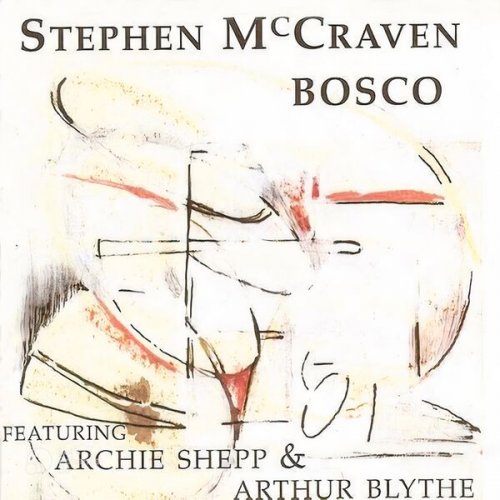
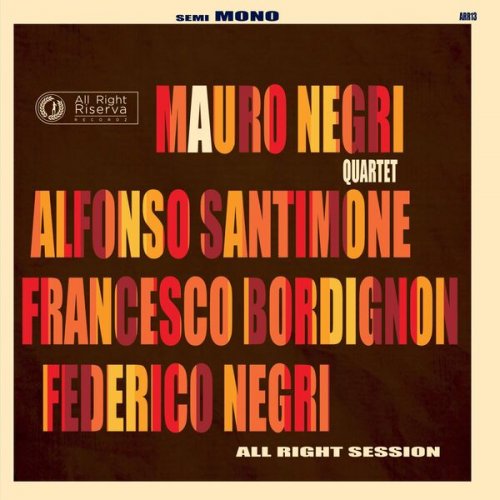
![Paul Mauriat - L'avventura (1972) [Hi-Res] Paul Mauriat - L'avventura (1972) [Hi-Res]](https://img.israbox.com/img/2025-12/19/q8l5an3pdrx7j3uta0q4cr2qi.jpg)
